Today a Reader, Tomorrow a Leader
The Library at St Bede’s has played and continues to play, a fundamental role at within the College. For more than 150 years and for many generations of Bedians, it has been a place of learning and of discovering the pleasure and benefits of reading
Librarian, Karen Poolton, shares with us the treasures hidden in this magical space. A woman who loves reading, who always dreamed of being surrounded by books and of passing on this passion to others, she will soon be saying goodbye to St. Bede’s and we would like to thank her for all these years of dedication and, above all, for passing on her love of reading to us.
We love to see our students reading before school starts or at break time. We owe much of this to Karen, who has guided and accompanied every reader in the school. In this interview, as well as revealing the keys to her success in making the library a warm and vibrant place for so long, she talks to us about the present and future of books, what the impact of digitisation has been like, the importance of reading and, of course, takes a look back at moments, anecdotes and memories with the students.
Thank you Mrs Poolton for passing on your passion! We will miss you.
How did you become so passionate about books?
I’ve always loved reading and from a very young age I wanted to be a librarian. That’s all I’ve ever wanted to do, and that’s all I’ve ever done. I did a degree in librarianship and ever since then I’ve worked in libraries, so that’s 40 years now. I’ve always used libraries. I’ve always loved reading, and I think I’ve always wanted to pass that on to people.
Do you have a favourite library?
I’ve been to the British Library, which I loved. Yes, a very modern building, really relevant, I really like it. I’ve been to the Ashmolean in Oxford.
I don’t tend to enjoy very old libraries. I love them. John Rylands is lovely, but I think I’ve always wanted it to be a vibrant space that people could enjoy. I’ve never particularly been into antiquarian books, that sort of thing. I’d rather have a vibrant, lively library and it’s the books that the reading that’s important as well as I think people forget. Libraries are a really important way of empowering people.
Getting information, and using that information: at the beginning of the Internet libraries were the places where you could go and use a computer, and I feel really passionate about that. I worked in public libraries at that time and it was called the People’s Network, and it was fantastic to see people who’ve never used a computer before using them for the first time. Older people in contact with their relatives on the other side of the world and to actually see them do that for the first time was just fantastic.
What is your favourite children’s book?
My favourite children’s book has got to be Goodnight Mr Tom by Michelle Magorian. Just a wonderful emotional book, it’s just brilliant.
I love books set in World War Two. I think things like the situation in Ukraine have just suddenly brought it all home, children having to move, children being evacuated and displaced. I think it’s good to remember that.
Do you have a quiet place to read at home?
I read anywhere. I always read before I go to sleep. It’s the way of clearing my mind from whatever happened during the day. It’s that relaxation, and that sort of transporting to another world. So I always read before I sleep.
What do you think about audio books?
Personally, I do listen to books occasionally, but it’s not my favorite way of accessing books, but I’ve got no problem with it.
It doesn’t matter how you access the book, it’s the effects those words have and being transported to another world or being made to think about an issue that you perhaps haven’t thought of. So I don’t mind how it’s accessed. I don’t mind people reading Ebooks, reading on Kindles on iPads. It’s not for me. I don’t personally like it. But I really don’t care how people access books. Listen, look, it doesn’t matter.
Do you take refuge in books depending on your mood?
Oh yes, yes definitely. And there are times when I really don’t feel like reading and if I’ve read a particularly emotional book, I have to have a gap. When I have finished with it, I stop. I don’t want anything else for a while and then I start again.
I like a good detective book on holiday, and I do tend to read books for adults on holiday, whereas in normal life I read a lot of books for children or young people, which I love but I tend to read an adult book if I go away.
The library is always vibrant with kids reading. How do you manage this environment?
Yeah, I think part of the key is to have read the books myself and I do. If I recommend books in classrooms, they are always books I’ve read and I think are really good.
So I think that’s important to have that personal experience and pass it on, and I think it’s important to have books for everybody. For example, Manga is really popular at the moment. Personally, I don’t really get it. It’s not for me, but that doesn’t make them any better or worse.
Different books for different people, so I try and I have as many books as possible of different genres; plenty of graphic novels, plenty of Manga. All sorts; so I really believe there is a book for everybody.
How do you feel about Marcus Rashford’s effort to get children to read?
Any way that we can get children reading is fine by me, anything. Perhaps books that could be deemed as less demanding, of a lesser quality, I don’t really mind, as long as you get children into books and I think re-reading books is a real refuge for some children, and it’s OK to read a book over and over and over again and come back for that comfort to Wimpy Kid or whatever, it doesn’t matter. I mean in the position I’m in, I’m really privileged and I can encourage children to read the books that they want to read. They don’t have to follow set texts for exams. I get the really good bit of getting them to read what they enjoy.
What do you think has been your greatest achievement in the library?
So just to get children and adults talking about books and recommending books to each other, that’s just the best thing. So yeah, that’s my achievement.
What relationships can be established from the school library with cultural and social environments?
I think it’s really important to have books that reflect all of us. I think it’s really important for children to be able to see themselves in books, so that’s a really important thing when I’m choosing books to have on the shelves.
What can the College librarian and the library contribute to the teachers?
I think it’s a big part of the library’s role to support teaching and learning, and that can be in providing the correct resources to support what’s being taught in the classroom. So that could be books, it could be online resources. I think we need to back up the teaching. So we provide the resources, but we also provide the skills to use information and I think those research skills are all about making children independent learners and the library’s got a big role in that.
It has been 150 years since the library opened. Do you know how many books we have?
We’ve got about 14,000 books in the library.
What titles do students read most?
I could list the popular authors Wimpy Kid books by Jeff Kinney and David Walliams books and the Ultimate Football Heroes series is really really popular.
Have you got any funny anecdotes or excuses about missing books?
Well, there’s always interesting excuses. I did have one returned from South America recently from a previous pupil who suddenly decided he’d send his book back. That was bizarre. He had kept it for thirty years.
I always count it a little bit of success if books are kept. Actually I know I shouldn’t approve of it, but I’d rather that it be kept in somebody’s house than never borrowed.
When renewing the library titles. is it hard to get rid of older books?
Now it’s really important to keep the books up to date and that the books are in good condition. It’s not pleasant taking out a book that’s damaged or just very worn or the paper has yellowed. Plus we have to keep making room for new books. If a book isn’t earning its keep on the shelves then it has to go. Obviously there are certain classics which we keep.
But we’ll be reducing our non-fiction books quite a lot. That’s an ongoing project, because they aren’t being used.
Do you think kids can tell if an online resource is reliable?
I think that’s something we have to teach. Actually, we have Britannica online and I always encourage students to use that rather than Wikipedia for obvious reasons. The information in Britannica has been checked and checked and checked.
But I think that needs pointing out to children and techniques of searching for information needs to be taught to them. Think about what they are researching before they start using search engines; use the right keywords to search.But I think we do have to teach it and that could be formally in a classroom or I try and I do it informally here when a child is searching for information. I just get them to think a little bit.
What advantages and disadvantages do you see in IT applied to books?
Well, I think the Lockdowns changed things. We’ve had an Ebook platform at St Bede’s for quite a few years, students never really used it. It’s a way of making Ebooks available like a normal library book. You have it for three weeks and then it disappears.
It never really took off, but students borrowed more during lockdown and we promoted more to them and it has been used more often. But I still have to say with fiction, the children prefer a printed book. It’s not really how I thought it was going to be, but it is and I’ve talked to children about it and they still do prefer printed books. Ebooks are available to them, and that’s fine, but they’re not really well used.
How do you see the future of books and libraries?
I think what’s happening to public libraries is very sad. I think communities that need them will lose out as opening hours are short and many libraries are closed. I think it’s a real shame and I think not everybody has a computer in their house and the library is a way of accessing that world. People like to go out just to have contact with other people and they’re fantastic social spaces where you can meet others.
Sometimes people don’t speak to anybody else during the day, and a library is a warm place where they can do that. I think a library is a warm place which is suddenly becoming very important to people. In schools I think libraries are as important as ever and I say the role of the library has changed. We are providing books to read, but we’re also instrumental in teaching people how to cope in a digital world.
If you had to pick one book that every student should read, what would it be?
There are probably several, but Wonder by RJ Palacio, which people might have seen as a film, but I think that as a book it makes you think about the way you treat people, and I think every child should read that book.
What do you think you will miss the most about St. Bede’s’ Library?
I will miss the children and their sometimes challenging behaviour, but no, I will miss the children. I’ll miss that sort of vibrancy and that and being able to talk to them about what’s good to read. I really will. I I love the interaction with them. The best thing is when somebody says ‘Thank you for giving me that miss, I really enjoyed it’ and I won’t have that again. Maybe from my own grandchildren. But that is what I will miss, it just keeps you going for weeks and weeks after. Just one small comment, it just means the world, and I will really miss that.
Could you give us advice on how to continue, maintain the wonderful work you’ve done here in the library for future generations?
Read, read themselves and pass that on. I really don’t think you can do this job without knowing the books really, really well. Read. Keep up to date with what you’re reading and pass that enthusiasm on to children.



